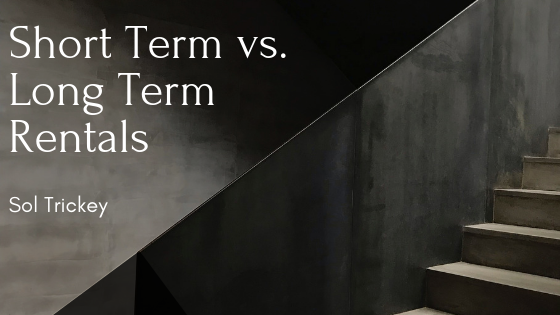Thinking about investing in rental properties? Having a sound strategy means knowing whether the property will be rented long term or short term. Both rental types have their own advantages and disadvantages, so it’s best if landlords are familiar with both types before deciding which might work best for them.
Depending on the area, it could be clear which type of rental is best. Popular vacation spots make for excellent short term rental properties. Residential areas are great places to set up long term rentals.
Before deciding whether to rent a property for short or long term, landlords should examine their location and weigh their options carefully. For example, a rental property in Queens, New York would be great for long term renting; a home in Aspen may be better suited as a short term rental.
Short Term Rentals
The definition of a short term rental is generally any rental length less than 8 months; however, they are frequently a week or less. These properties are often used for family holiday, vacations, and business purposes. Occasionally, short term rentals are also used by individuals or families in between long term housing due to unexpected relocation or a gap between the sale of their old home and the purchase of their new one.
Short term rentals will show a bigger return. You will usually see more profit from these properties; however, they usually come with greater expenses. Short term rentals also allow for some flexibility in property use. Many short term property, especially those investing in vacation-type homes, will reserve the property for personal use a few times a year.
The downside to short term rentals includes inconsistency and undependability. You won’t always have someone staying in or using the property, and often those that do rent it out have little respect for it.
Long Term Rentals
Income levels for long term rentals aren’t as profitable as short term rentals, but they come with less risk and more consistency. It may take a while to find a good tenant that respects the property enough to minimize damages and demands. A landlord that hasn’t found a good tenant fit may struggle with people coming and going. Peace of mind and security only come when the landlord finds the right long term tenant for their specific rental.
The best thing about long term rentals is the consistent cash flow. Once a good tenant is found, a landlord can rely on that monthly rent to pay expenses. Be wary, though, that delinquent tenants are not uncommon and legal action to collect and/or evict is sometimes required.
